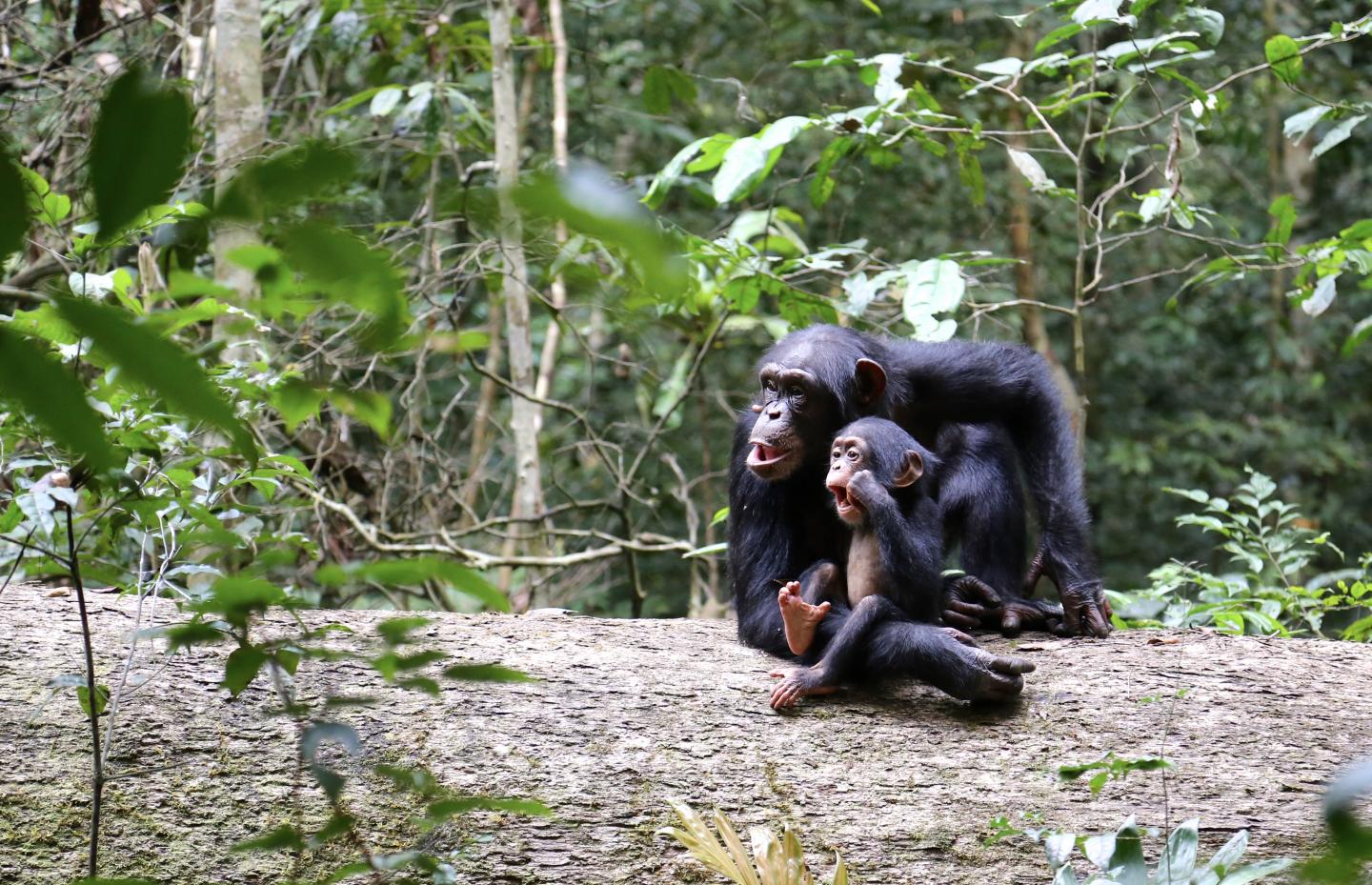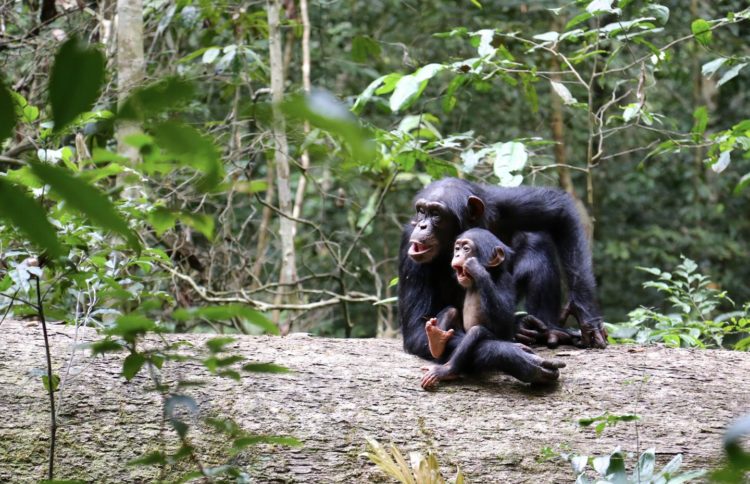Mothers may be shaping pre-adult growth and offspring muscle mass even without direct provisioning

Credit: Liran Samuni
The prolonged periods of juvenility and nutritional dependence that are characteristic of human development are thought to facilitate brain and somatic growth in children, as well as provide opportunities to learn and accumulate skills required for a productive adult life. In chimpanzees, the benefits of continuing to associate with mothers after becoming nutritionally independent are less well understood.
To address this, the researchers used a dataset comprising 18 years of research effort on three groups of wild chimpanzees at the Taï Forest, Côte d’Ivoire, to examine the effects of maternal loss and mothers’ social status on offspring lean muscle mass development. “We assessed the muscle mass of 70 offspring from 41 mothers by means of urinary creatinine concentrations, a by-product of metabolic activity in muscles,” explains Tobias Deschner, a researcher at the MPI for Evolutionary Anthropology. As expected, offspring muscle mass increased with age in both males and females. However, chimpanzee offspring that lost their mother after they were already weaned had less muscle mass than those with living mothers. Furthermore, mothers of high social status measured by dominance rank, produced offspring with higher muscle mass.
This study demonstrates how maternal presence and maternal social status can impact offspring phenotype in wild chimpanzees. Importantly, even once offspring are nutritionally independent, maternal loss has negative consequences on their growth. “Our results emphasize the crucial role of mothers and suggest that even in the absence of consistent direct provisioning from mothers to offspring, chimpanzee mothers still indirectly influence food consumption in their offspring”, Liran Samuni, one of the two first authors on the study, points out.
“This may occur in similar ways to humans”, suggests Patrick Tkaczynski, the other first author on the study. “Mothers may provide support to their offspring during competitive interactions with others, and increase their chance to ‘win’ conflicts, or soften reactions of offspring to challenging situations. Also, mothers may provide opportunities for offspring to learn how to find and access hard to extract or rare food items.”
“Our study provides evidence that a mother-offspring association and dependence that lasts beyond the weaning age, although unique in its duration and level of investment in human societies, may be a trait with deep evolutionary origins that we share with one of our closest living relatives”, declares Catherine Crockford, head of the ERC project group Ape Attachement and senior author of the study.
###
Contact:
Dr. Patrick Tkaczynski
Max Planck Institute for Evolutionary Anthropology, Leipzig
+49 341 3550-224
[email protected]
Dr. Liran Samuni
Max Planck Institute for Evolutionary Anthropology, Leipzig [email protected]
Dr. Catherine Crockford
Max Planck Institute for Evolutionary Anthropology, Leipzig
+49 341 3550-220
[email protected]
Media Contact
Sandra Jacob
[email protected]
49-341-355-0122
Related Journal Article
http://dx.





